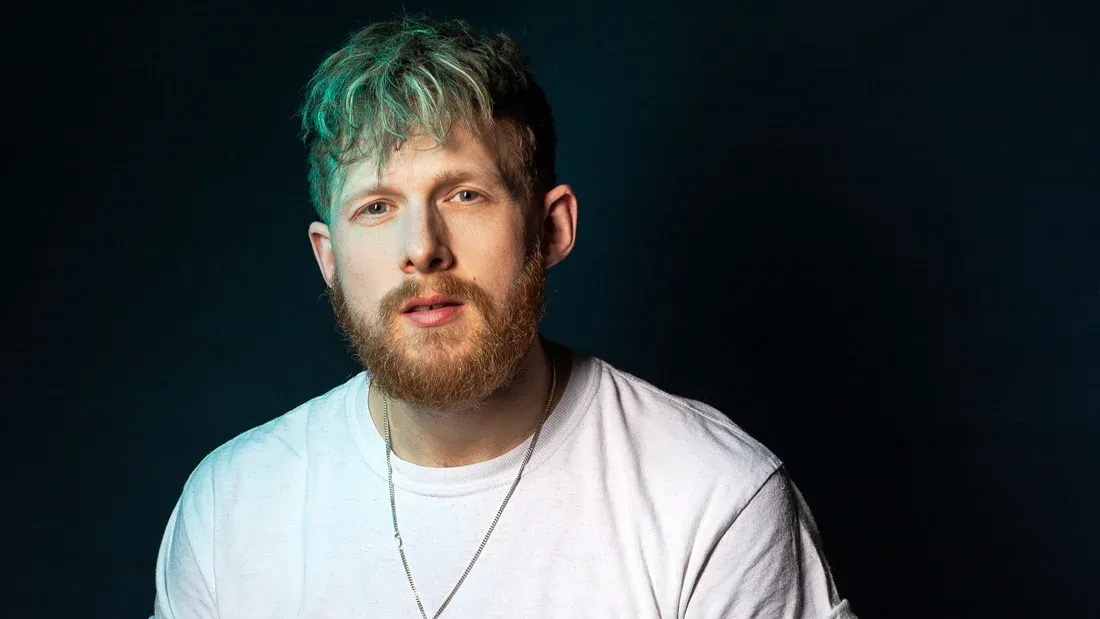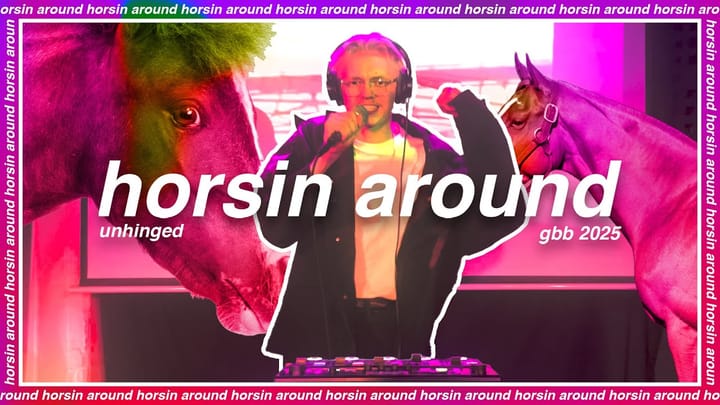On being a grownup in beatbox: a Q&A with World Champion Beatboxer Hobbit
In the age of studio beatboxing, few beatboxers make a living on stage. A longtime stage performer explains how he does it.

With all due respect to y’all, there aren’t many adults in beatboxing.
You can measure this by the average age of beatboxers in the scene, by the teenage prodigies who have come over the years — from Alexinho to Napom, Hiss and Jollux, and many more, the teenage beatbox star is a long standing tradition — or by the quick burnout of talent who age past 25, but when I say there aren’t many adults in beatboxing, I mean something else.
When I talk about adults in beatboxing, I mean people who have a vision, can execute on that vision, and then pass it on to other beatboxers. This can manifest in teaching skills, and there are a lot of beatboxers who have become known for tutorials and one on one teaching, but I think this is most relevant in two contexts: money making and community organizing.
I have written at length about community building — here, here and here are a few examples — but for artists who are elite at their craft but still struggling to gain a following, the money making is crucial. There are very few performers who can pay their rent with money earned from beatboxing, and it’s an even smaller subset who can teach others to follow suit.
SpeshFX is a reader-supported publication. To receive new posts and support my work, consider becoming a free or paid subscriber.
With this in mind, I sought out a longtime beatboxer who makes a living from beatboxing to see how he makes his living, and what advice he has for beatboxers who also want to earn money performing.
Jack Hobbs, aka Hobbit, is as adult as it gets in the beatbox world. He has been beatboxing since before the first Beatbox Battle World Championship, and has been earning money for beatbox performances for most of the past two decades. A perennial runner-up in solo competitions, Hobbit’s only major title (if you can use only in this context) is world champion in the crew category with The Beatbox Collective.
His experience stands in opposition to the notion, common among young beatboxers, that in order to be a great beatboxer you have to win stuff, and then fame and money will follow. And in an age where more beatboxers are turning to studio recording and away from live performance, Hobbit is the rare beatboxer who you won’t find in the studio at all. It turns out, to make a living from beatbox performance, you just have to perform. If you do a good job, someone might want you to do it again.
When you first started earning money performing, how did you find your gigs?
I did a lot of open mics, going out and jumping up after some singer songwriter who sings with their dog or something random and then you go up and [Hobbit beatboxes a little drum fill] and people are intrigued by it. So when I started, it wasn't like, “I'm going to be a professional beatbox.” It was just something I loved doing, and I got addicted to doing it.
Through doing open mics, someone would see me and be like, “I run a pub or a little venue, would you come and play? I can pay your travel.” That sounds awesome.
So you go and do that, do a few of those. And then maybe someone would see you then they're like, “ I'm running this event. I can pay your travel plus a bit of money on top.”
And how old were you when you were doing this?
I was in school, maybe 13 or 14. And these were different shows. Everything from doing a workshop or playing a Bar Mitzvah or playing a festival. It just kind of snowballed from there.
When my third year [of university] was about to start, I got offered a tour. It was a big tour with loads of musicians from around the world. So I ended up doing this for three months, and I deferred my year to come back. When it was due to come back the next year, I got offered another tour, a theater show. I never got my degree.
So what’s the breakdown of your beatboxing work? What percent is paid and what percent is helping out just for the culture?
Most of my work is corporate shows, for companies, whether it's teaching or doing a performance. And I have other shows going. I have a show with a comedian we do like a kid's comedy beatbox show. I have The Beatbox Collective, and then the other bits that come in.
If I get asked to judge stuff, most of them are done to support the scene. I really do have a big passion for beatboxing, supporting it, enjoying it, and being a fanboy. So if I get asked to judge battles and they're like, “we don't have much budget,” I'm down. If I'm free and available, I'd love to come and support. I guess I'm in a lucky position where I can afford to do that. A lot of people don't have the finances to be able to do that. Or if they've got a job they're not able to do that.
When you prepare material, how does that change from battles to gigs?
Beatboxing is still quite a small thing. It's big within what it is, but actually it's still quite small, right? So within a beatbox battle, you're going to show off to judges, to the audience, and beat the other person next to you, right? And that's your goal. So it's about showing off. How many tricks can you do? How many sounds can you do backwards while standing on your head.
But when you're performing to a secular audience, you have to win them over. And it's about accommodating that. In terms of the performance side of things,it's about making sure that your set is eclectic enough to get everyone on board. So that's not going in, and going in straight with 17 sounds and a lip roll and an inward base and showing off in the first minute, which you would do in a battle.
When you're performing, it's about taking people on that journey. And I think that comes down to experience and knowing how to work different crowds. If you're performing to a crowd, you can learn to be able to read them. “These people are more into house or these people are more into hip hop, or these people are more into the comedic side.”
What are some things you’ve done to make yourself more attractive to potential clients?
Number one is don't be a dick.
Be responsible.Be on time, be present. Listen, and be accommodating, but not too accommodating. If you've been booked for 10 minutes, and then they're like, “actually, can you do 20?” You're like, No, I've been booked for 10 minutes. I'm sorry. But if you want to put me on, we'll have to negotiate and whatnot.
But it's like, doing all these different shows and being present. Knowing which performances are good to represent and maybe take a hit on a fee, because it might be a showcase opportunity in front of corporate clients, or a festival booker. But definitely, in hindsight, you look back and stuff and be like, shit, I could have probably asked for more money for that, or been paid more for that. For me. It's all a learning process.
This learning process has only recently escaped taboo status and become a communal process, right?
Well, that's the thing man. With other jobs, you know who's successful by their status within a company. The CEO is obviously getting paid a shitload more than Paul who works in the mailroom. That's black and white. But in other art forms you don't know that much.
That's not to say that you should be going about and displaying how much you get paid, but it's also about helping and supporting the new generation and other people who don't know that if they're doing a show for a brand that they can charge more than if they're doing a show for their friend who's got a local sports bar.
It's knowing that you don't want to get the piss taken out. Because that happens.
SpeshFX is a reader-supported publication. To receive new posts and support my work, consider becoming a free or paid subscriber.
Upcoming Calendar: Events
- Vokal Total: Graz, Austria. July 19-22 (battle July 21).
- Vision Beatbox Festival: Birgmingham, UK. July 22.
- Loop Mayhem 1.5: Kassel, Germany. July 22-23.
- Beatbox Battle World Championship: Berlin, Germany August 2-6.
- Rahzel and American All Stars at Afropunk: New York, USA. August 26-27.
- Beatland in-person final: Bali, Indonesia. September 16-17.
Upcoming Calendar: Wild Cards
- Beatbox Wild Cup (by Saarland Beatbox): open through August 8.
If I missed any upcoming events or Wild Cards, hit me up on Instagram, I’m @HateItOrLevitt or @SpeshFX.



